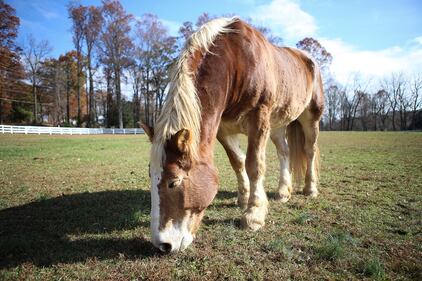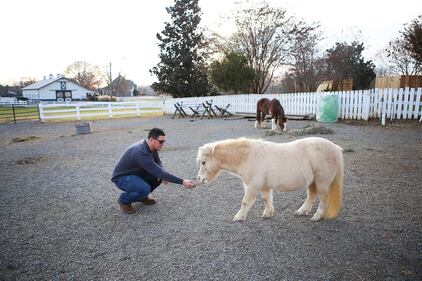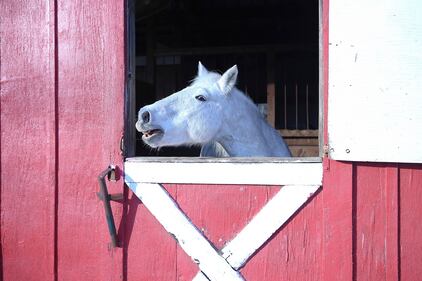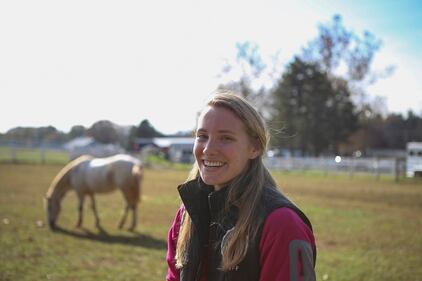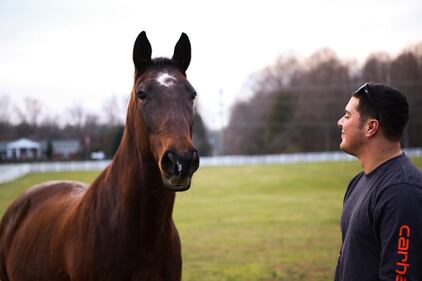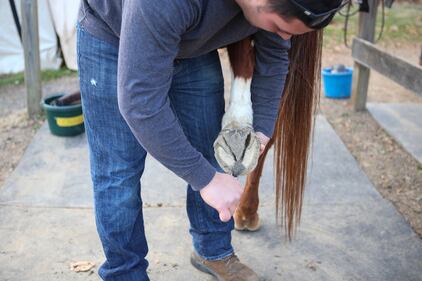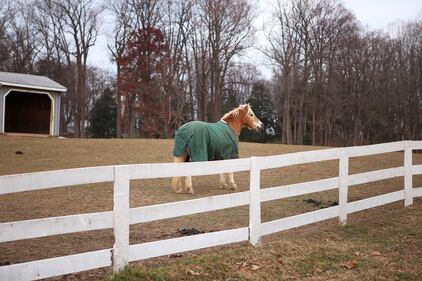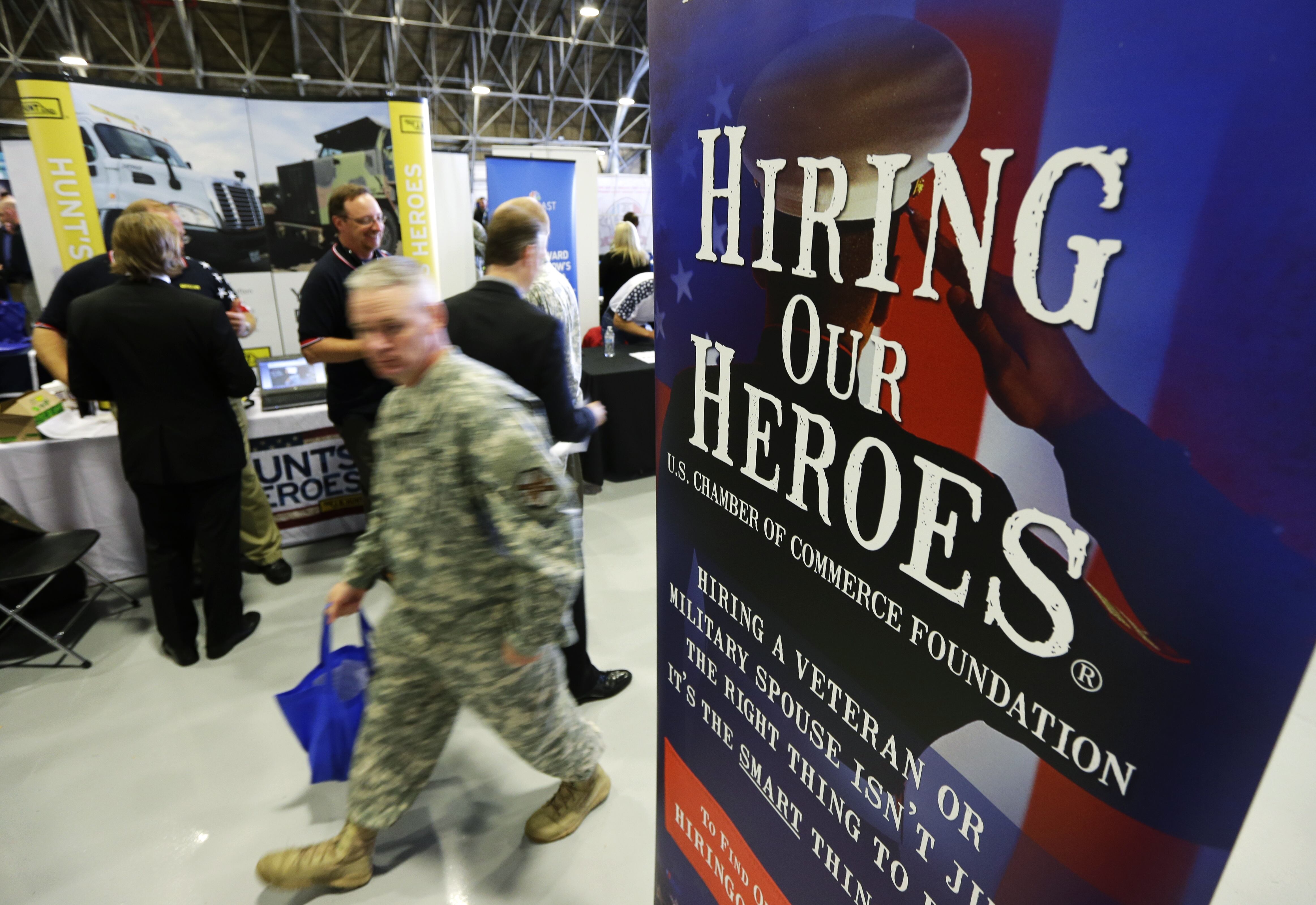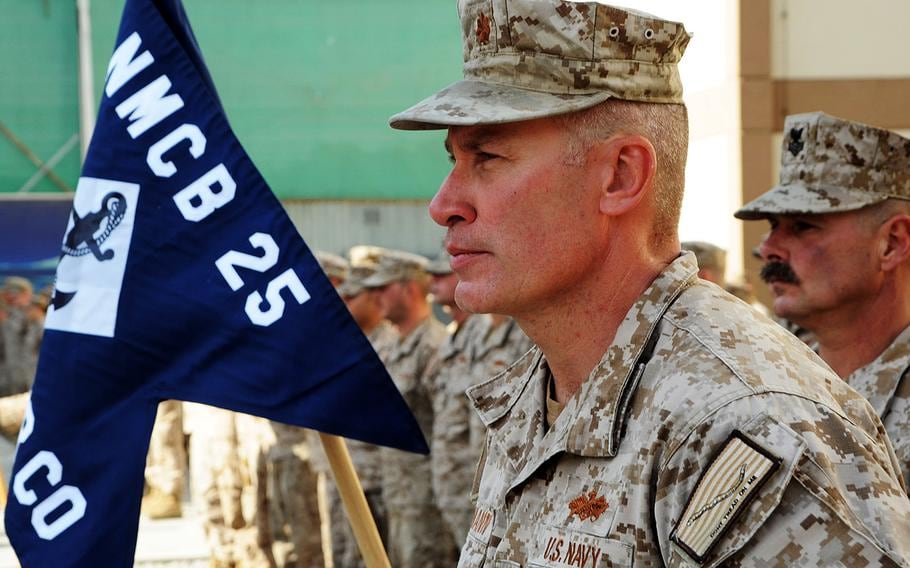It took decades for Jeannine McDonald to finally admit she was struggling with depression and post-traumatic stress disorder.
When she did, that itself was devastating. The Air Force veteran said she tried everything — counseling, medication, acupuncture. But nothing seemed to help.
“I was at that point where I was numb to everything; I didn’t enjoy anything,” McDonald said. She had only ridden horses a few times as a child, but the magic of it had stuck with her.
When a friend asked her what she would choose if she could do anything, McDonald knew. “The only thing I could think of was to ride.”
As clinicians seek innovative ways to heal veterans struggling with PTSD, equine therapy has been growing in popularity.
It is still medically controversial — part of that reason being that there hasn’t been much data or research on it, especially with veterans. But a team at Columbia University in New York City has set out to change that.
The team is finishing up a yearlong study of veterans struggling with PTSD and the effects of horse therapy.
The Virginia facility where McDonald rides serves children with disabilities, such as autism or Down Syndrome, and has a separate focus on active-duty military and veterans. A partnership with a local military installation brings out active-duty riders twice a week. Many of them are struggling with substance abuse, depression or PTSD.
Image 0 of 7
Tessa Hassett has a background in clinical psychology, and has been a riding instructor at the Northern Virginia Therapeutic Riding Program in Clifton, Virginia, for three years.
“A lot of them have said that whatever they’ve been through with their PTSD and depression that they never thought they’d be able to bond with someone again and feel that personal connection,” Hassett said. “But with their horse, they’re feeling that connection. They’re able to take that into the rest of their lives and into their other relationships.”
McDonald said that after learning to control a huge horse — she usually rides Booker, a Clydesdale/Hackney cross — she has learned to be gentler with her four children and her husband.
The hardest part about equine therapy? For McDonald at least, it’s getting there. But she’s happy once she arrives, she said. Riding gets her outside, and helps her build core strength that she lost after an accident and spinal surgery in the Air Force.
“It’s different when it’s not a human being,” she said. “You can’t replace that, but there’s something also about animals, like therapy dogs. How many people have just been transformed or changed or just come out of the pain because they have something that loves them back and doesn’t ask questions?”
The Washington Post reported in June that veterans participating in Columbia University’s study are spending 90 minutes once a week for eight weeks interacting with the horses.
Prudence Fisher, Columbia University professor of clinical psychiatric social work, told the Post, “One of the things we’re optimistic about is how much the veterans like the treatment.”
Such trials usually have a 30 percent dropout rate, Fisher told the Post, but that’s not happening with this trial, which ends in December.
The veterans enjoy being there, she said.
And McDonald knows why, and recommends equine therapy to all struggling veterans.
“There’s something about the outside of a horse that’s good for the inside of a man,” she said.
“I have not seen or known of anyone who hasn’t been saved in a certain way by being around these horses.”
Andrea Scott is managing editor of Marine Corps Times. On Twitter: _andreascott.
Andrea Scott is editor of Marine Corps Times.
